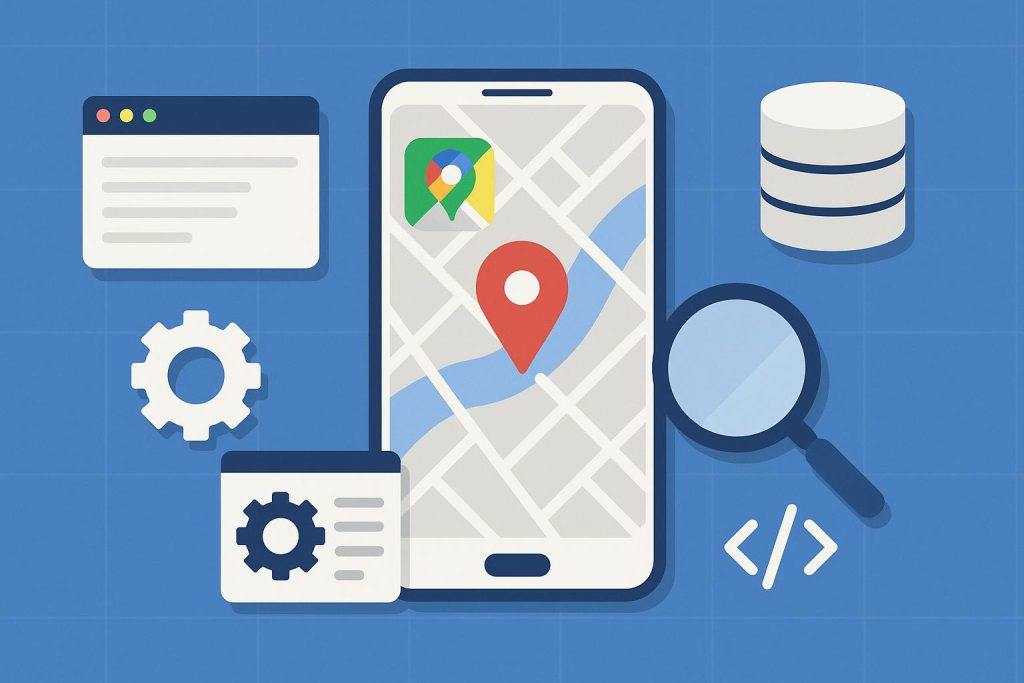When it comes to generating leads or collecting business intelligence, Google Maps is a goldmine. The challenge is extracting that information at scale without spending endless hours copying and pasting. Over the past few years, a new wave of tools has emerged to make this process faster, more reliable, and often automated.
Why Google Maps Scraping Matters
Google Maps holds one of the richest databases of local businesses worldwide. For sales teams, agencies, and researchers, being able to export names, phone numbers, addresses, websites, and reviews into a usable format is a huge time-saver.
Whether you’re looking to build a targeted outreach list or understand a new market, a scraper can turn scattered map results into structured data.
The problem is that not all scrapers are created equal. Some focus on simplicity, others on scale, and a few push into automation and enrichment. That’s why it’s worth comparing different approaches.
MapScraper.ai: An AI-Powered Approach
MapScraper AI is a relatively new entry that brands itself as an AI-driven scraper. Instead of being just a basic export tool, it allows users to run projects, export in multiple formats (CSV or JSON), and even enrich raw Google Maps data with websites and emails.
For growth marketers or teams that need repeatable workflows, this kind of structure makes it easier to plug into larger pipelines.
In practice, MapScraper.ai is best suited to companies that want a balance of usability and flexibility. It’s not the cheapest option, but the ability to manage data more systematically makes it a strong candidate for long-term use.
MapLeadScraper.com: Lightweight and Practical
For people who value speed and simplicity, MapLeadScraper takes a different approach. It avoids extra features and focuses on one thing: pulling clean business lists into a spreadsheet as quickly as possible.
Agencies or freelancers who only need straightforward CSV or XLSX exports often find this is more than enough. No setup, no integrations—just search, scrape, and export.
Other Tools Worth Mentioning
While the two platforms above cover a lot of ground, they aren’t the only options. A few others are worth considering:
- Outscraper: A SaaS scraper with a user-friendly interface and tutorials. Popular with non-technical users who want one-click scraping.
- Apify: A developer-focused platform where you can run ready-made Google Maps actors or customize your own scraping flows. Great for technical teams that need APIs and automation.
- Bright Data: An enterprise-grade solution with SERP and Maps APIs. Built for scale, compliance, and organizations that want programmatic access.
- Phantombuster: An automation-first service that makes it easy to schedule recurring scrapes and pipe results into Google Sheets or CRMs.
Trade-offs:
- Outscraper is quick to start but less flexible.
- Apify offers customization but requires technical know-how.
- Bright Data delivers stability at scale but comes at enterprise pricing.
- Phantombuster is ideal for light automation tasks.
How to Choose the Right Scraper
The best way to choose isn’t by reading feature lists—it’s by testing. Run the same query (e.g., “coffee shops in Chicago”) across multiple tools and compare:
- How long it takes to collect 100 results
- Data completeness (phones, websites, reviews)
- Duplicate rates after cleaning
- Ease of export and system integration
- Effective cost per 1,000 leads
This kind of test quickly reveals which scraper fits your needs. A freelancer might prioritize speed and simplicity, while a growth team scraping multiple markets weekly will value repeatability and enrichment.
Final Thoughts
The days of manually copying data from Google Maps are over. With the right scraper, you can turn scattered business listings into structured lead lists in minutes.
- If you need a workflow-friendly platform, MapScraper.ai is a strong candidate.
- If you just want fast spreadsheets with no fuss, MapLeadScraper.com is hard to beat.
- If you’re exploring alternatives, Outscraper, Apify, Bright Data, and Phantombuster each bring unique strengths.
Whichever option you choose, remember to use data responsibly and comply with local privacy regulations. Google Maps scraping can be a powerful growth lever—provided you do it with the right tool and the right mindset.




